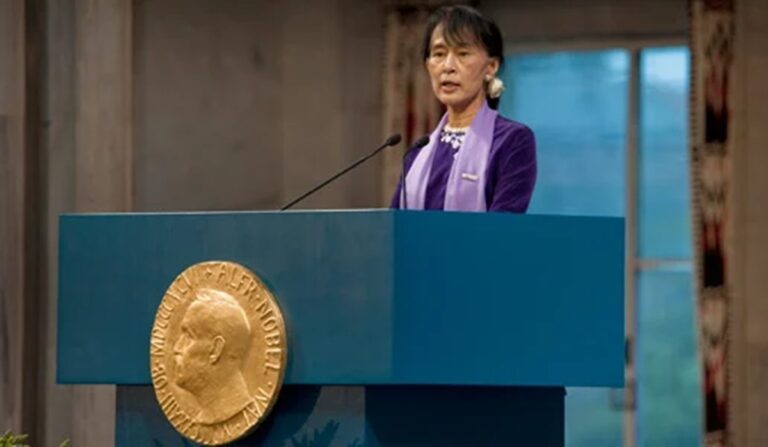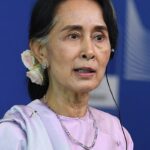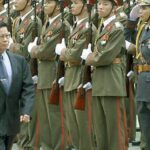
Aung San Suu Kyi
State Counsellor (detained as of 2021)
Early Life and Background
Aung San Suu Kyi was born on June 19, 1945, in Rangoon (now Yangon), Myanmar (formerly Burma). She is the daughter of General Aung San, a revered independence hero who helped negotiate Burma’s independence from British colonial rule before being assassinated in 1947. Her mother, Khin Kyi, was a prominent diplomat and served as ambassador to India. Suu Kyi was educated in Burma, India, and later at the University of Oxford in the UK, where she studied philosophy, politics, and economics.
Entry into Politics
Suu Kyi returned to Burma in 1988 to care for her ailing mother, at a time when the country was in political turmoil. Massive protests against military rule were taking place. She quickly emerged as a key leader in the pro-democracy movement and co-founded the National League for Democracy (NLD). That same year, she gave a historic speech in front of the Shwedagon Pagoda calling for democratic reform.
House Arrest and International Recognition
In 1989, Suu Kyi was placed under house arrest by the ruling military junta, where she spent nearly 15 years (on and off) under detention over the next two decades. Despite her imprisonment, the NLD won a landslide victory in the 1990 general elections, but the results were ignored by the military.
During her detention, Suu Kyi became a global symbol of peaceful resistance to authoritarianism. In 1991, she was awarded the Nobel Peace Prize for her nonviolent struggle for democracy and human rights.
Political Leadership
Released from house arrest in 2010, Suu Kyi began participating actively in politics. Her party, the NLD, won a sweeping victory in the 2015 general elections, and she became the de facto head of government, holding the title of State Counsellor, as the military-drafted constitution barred her from the presidency because her children are foreign nationals.
Her tenure was marked by economic reforms, attempts to broker peace with ethnic groups, and efforts to reduce the military’s influence in politics. However, she faced significant criticism internationally for her defense of the military’s actions against the Rohingya Muslim minority during the 2017 crisis, which the United Nations has described as a genocide. Her reputation abroad suffered, although she retained broad support within Myanmar.
2021 Military Coup and Detention
On February 1, 2021, the military seized power again, detaining Suu Kyi and top members of the NLD. The military justified the coup by alleging election fraud in the 2020 elections, where the NLD again won a large majority. Suu Kyi was subsequently convicted on multiple charges, widely seen as politically motivated, and sentenced to decades in prison. As of 2025, she remains in military custody, although there have been reports of partial commutations of her sentences and ongoing international pressure for her release.
Legacy
Aung San Suu Kyi remains one of Myanmar’s most significant political figures, emblematic of both the promise and limitations of democratic reform in the country. Her life reflects a complex narrative—once hailed as an icon of nonviolent resistance, later criticized for political compromises and failures on human rights. Despite this, she continues to symbolize the struggle for democracy in a nation where military rule persists.




